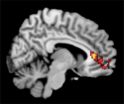(Press-News.org) Barcelona, Spain: Results from a trial of the anti-cancer drug galeterone show that it is successful in lowering prostate-specific antigen (PSA) levels in men with a form of prostate cancer that is resistant to treatment with hormone therapy (castration-resistant prostate cancer or CRPC).
Associate professor Mary-Ellen Taplin, of the Dana-Farber Cancer Institute, Boston, USA, will tell the 26th EORTC-NCI-AACR [1] Symposium on Molecular Targets and Cancer Therapeutics in Barcelona, Spain, today (Wednesday) that galeterone was well tolerated by patients in the ARMOR2 trial, and also lowered PSA levels in a subset of men with CRPC that was resistant to other drugs that target the cancer, such as enzalutamide and abiraterone.
"Recent data have shown that a variant of the androgen receptor called AR-V7, found in tumour cells circulating in the blood of patients with metastatic CRPC, predicted resistance to treatment with enzalutamide and abiraterone," she will say. "Indeed, we believe AR-V7 and other, related variants are a mechanism of resistance in this disease and patients who have them may have a poorer prognosis."
Researchers believed that galeterone could be effective against CRPC because it disrupts the androgen receptor signalling pathways that are involved in the cancer, and preclinical work has shown it is active against the AR-V7 variant.
Several clinical centres in the USA and Canada recruited four groups of men with CRPC to a phase II study to receive 2550mg of galeterone orally once a day: 22 men had CRPC that had not metastasised (spread) and had received no previous treatment; 39 men had metastatic CRPC and no previous treatment with abiraterone or enzalutamide; 37 and nine men had metastatic CRPC and had failed treatment with abiraterone and enzalutamide respectively.
As well as evaluating PSA responses to the drug, the researchers also analysed levels of circulating tumour cells, including identifying whether or not they contained the AR-V7 variant. The AR-V7 variant is formed when an androgen receptor loses the end part of the receptor, called the C-terminal end; this is deleted due to an error in RNA processing in tumour cells, leaving only the beginning part of the receptor, the N-terminal end. The researchers concluded that patients with circulating tumour cells with more N-terminals than C-terminals had the androgen receptor variants.
"We found that galeterone resulted in meaningful PSA declines in patients with metastatic CRPC, and imaging showed that the disease was stable or had responded to the drug," Prof Taplin will say. "Galeterone was safe, without any unexpected toxicity. We also detected circulating tumour cells, which were found in higher numbers in patients who had received more prior therapies.
"In a subset of seven patients who had circulating tumour cells with a higher ratio of N-terminal compared to C-terminal androgen receptors and so were likely to have the AR-V7 variant, six had favourable PSA responses to galeterone. This suggests that the presence of AR-V7 in circulating tumour cells does not preclude response to galeterone as has been shown to be the case for abiraterone and enzalutamide."
Among the group of men who had non-metastatic and metastatic disease who had not received prior treatment with abiraterone and enzalutamide, data for 60 were available for analysis. PSA levels declined by 30% or more (PSA30) in 50 out of 60 (83%) patients, of whom 42 (70%) went on to have declines of 50% or more (PSA50). Among patients who were resistant to abiraterone, 37 were available for evaluation; 13 out of 37 (35%) had any PSA decline. Among patients who were resistant to enzalutamide, nine were evaluable; five out of nine (56%) had any PSA decline.
The presence of circulating tumour cells were evaluated in 71 patients and were found to be higher in 64 (90%) of the patients who had more advanced cancer that had failed more previous treatments.
Galeterone will now be tested in a phase III trial in which patients with metastatic CRPC with the AR-V7 variant will be randomised to receive either galeterone or enzalutamide. The researchers will be looking to correlate AR-V7 with response to galeterone and to see what effect the drug has on the length of time patients survive without their disease progressing.
"This phase III trial will be noteworthy for being the first prostate cancer trial to assess a biomarker, namely AR-V7 in circulating tumour cells, as a predictor of response at the same time as testing the efficacy of the drug," Prof Taplin will conclude.
Professor Josep Tabernero, a member of the scientific committee for the EORTC-NCI-AACR Symposium and head of the medical oncology department at Vall d'Hebron University Hospital and director of the Vall d'Hebron Institute of Oncology, Barcelona, Spain, commented: "These are encouraging results, which show that galeterone has significant clinical activity in men with castration-resistant prostate cancer that fails to respond to other drugs. Understanding the biological and genetic basis to drug resistance and cancer progression has enabled researchers to identify and develop a targeted drug that may prove to be beneficial in this type of cancer, without causing unmanageable side-effects. We look forward to the results from the phase III trial with interest."
INFORMATION:
[1] EORTC [European Organisation for Research and Treatment of Cancer, NCI [National Cancer Institute], AACR [American Association for Cancer Research].
VIDEO:
New research from the University of Copenhagen and Copenhagen University Hospital shows that low blood vitamin D levels increase mortality. The study included 96,000 Danes and was recently published in...
Click here for more information.
Vitamin D deficiency is generally associated with an increased risk of poor bone health. However, recent studies have shown that low levels of this important vitamin also involve an increased risk of other diseases and higher mortality ...
A brief coping strategies therapy which provides stress relief and emotional support for people caring for relatives with dementia can reduce depression and anxiety and improve wellbeing at no extra cost to standard care, new research published in The Lancet Psychiatry suggests.
The study led by Gill Livingston, Professor of Psychiatry of Older People at University College London in the UK, found that family caregivers receiving the START (STrAtegies for RelaTives) programme were seven times less likely to develop clinically significant depression than those given usual ...
A new diagnostic technique -- resulting from monitoring thousands of courtship calls from songbirds -- can be used to safely map the human brain during complex neurosurgery, according to research from Neuroscientists at NYU Langone Medical Center and elsewhere.
The mapping process, first tested in zebra finches, involves gently placing a miniature electrical cooling device at different locations on a small region of the songbirds' brains. This slows down processing of complex neural behaviors, such as a birdsong or human speech.
In a report prepared for the Society ...
DURHAM, N.C. -- Holiday shopping can be mentally exhausting for anyone. But a new Duke University study finds that older adults seem to need extra brainpower to make shopping decisions -- especially ones that rely on memory.
The study appearing Nov. 19 in the Journal of Neuroscience suggests that older shoppers use an additional brain area to remember competing consumer products and choose the better one.
"The study gives a bright picture, actually," said lead author Nichole Lighthall, a postdoctoral researcher in Roberto Cabeza's lab at Duke's Center for Cognitive ...
LA JOLLA, CA--November 18, 2014--"Protein misfolding" diseases such as cystic fibrosis and Alzheimer's may be seriously exacerbated by the body's own response against that misfolding, according to a new study led by scientists at The Scripps Research Institute (TSRI).
The researchers examined patient cells and animal models of several diseases that feature chronic protein misfolding and found that in each case, a cellular defense system against protein misfolding, called the "heat shock response," was overactive. Reducing its activity lessened the signs of disease and ...
Sleep is a critical period for memory consolidation, and most people don't get enough. Research has shown that even brief periods of sleep deprivation can lead to deficits in memory formation.
In a new study, published in the Journal of Neuroscience, a team led by scientists from the University of Pennsylvania found that a particular set of cells in a small region of the brain are responsible for memory problems after sleep loss. By selectively increasing levels of a signaling molecule in these cells, the researchers prevented mice from having memory deficits.
Robbert ...
LOS ANGELES (STRICTLY EMBARGOED UNTIL 5 P.M. EST on NOV. 11, 2014) - Lou Gehrig's disease, also known as amyotrophic lateral sclerosis, or ALS, might damage muscle-controlling nerve cells in the brain earlier in the disease process than previously known, according to research from the Cedars-Sinai Board of Governors Regenerative Medicine Institute. The findings, published in the Nov. 12 Journal of Neuroscience, could shift researchers' attention from the spinal cord to the brain's motor cortex as the disease's initial point of dysfunction.
"In this study, we show the ...
Home exercise can ease feelings of hopelessness in people with coronary heart disease, according to a small study presented at the American Heart Association's Scientific Sessions 2014.
Feeling hopeless can be dangerous because it can discourage people from taking healthful steps such as exercising or quitting smoking, said Susan L. Dunn, Ph.D., R.N., lead author of the study and a professor of nursing at Hope College in Holland, Michigan.
People with hopelessness may also suffer from depression, which is marked by a loss of interest in activities they normally enjoy.
"For ...
A new trans-satellite wireless 12-lead ECG can identify the most severe type of heart attack swiftly and save significant time from ambulance to angioplasty, according to research presented at the American Heart Association's Scientific Sessions 2014.
An ECG measures the electrical activity of the heart and helps medical personnel determine if a person had an ST-elevation myocardial infarction (STEMI). Angioplasty, also known as percutaneous coronary intervention (PCI), is a procedure in which an inflatable balloon opens a blocked artery to restore blood flow to the heart.
During ...
In a small study in Japan, people who stopped smoking didn't face increased death risk if they gained weight, according to research presented at the American Heart Association's Scientific Sessions 2014.
"Quitters had a significantly lower risk of death compared to smokers regardless of their weight change after they stopped smoking," said Hisako Tsuji, M.D., lead author of the study.
Researchers compared deaths from all causes in 1,305 Japanese adults who quit smoking to deaths among 2,803 Japanese smokers. Participants in both groups were 65 percent men, average age ...



